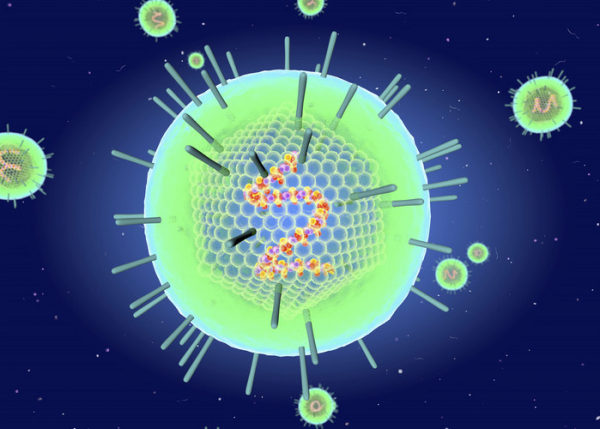
Discovering the cause of a disease is not easy. One reason is that the vast majority of diseases do not have a single cause. Instead, most diseases occur because multiple factors combine to cause the disease.
One factor is genes. Some people are born with one or more genes that make them vulnerable to a disease. Other factors come from your environment and behavior: what you eat, the air you breathe, the amount of physical activity you engage in, and habits such as smoking. Recent research finds that certain viruses may also be important contributing factors in causing multiple sclerosis (MS).
Multiple sclerosis harms cells in the brain and spinal cord — but why?
Multiple sclerosis is a disease of the brain and spinal cord that can cause many neurological symptoms, including arm and leg weakness, loss of vision, and difficulty thinking, as well as severe fatigue. Over the past 50 years we’ve learned that MS is an autoimmune disease: in various ways, the immune system attacks the brain and/or the spinal cord, leading to the symptoms of the illness.
However, we haven’t figured out why:what causes the immune system to go on the attack? Over the years, several viruses have been proposed as causes of MS, only to have subsequent research show that they were not. That led some MS doctors and scientists to discount viruses as possible causes.
Yet growing evidence in recent years points to several viruses that may be triggers of MS. The strongest evidence is for Epstein-Barr virus (EBV). This virus infects most people in developed nations like the US in their teen or young adult years.
Once a person is infected, the virus quietly remains alive in the body for the rest of a person’s life. In most people, it causes no health problems. But, rarely, it can cause certain cancers. Now, it has been linked to multiple sclerosis.
Delving deeper into a link between Epstein-Barr virus and MS
A large, long-term study from Harvard, published in the prestigious journal Science, attracted a lot of attention. Blood samples were repeatedly collected from 10 million US military personnel over 20 years. The samples were tested for evidence of infection with EBV.
Over the 20 years, some people in the study developed MS. The researchers compared two groups: people who were not infected with EBV when they entered military service, but then became infected later on; and people who remained uninfected by the virus. Those in the first group were 32 times more likely to develop MS than those in the second group. On average, symptoms of MS began about five years after a person became infected with EBV.
What do these findings tell us? The study provides strong evidence that a new infection with EBV is one important factor — maybe even a necessary factor — in causing MS. But the story is more complicated than that. Think about this: About 95% of all humans become permanently infected with EBV by early adulthood, but fewer than 1% of people develop MS. So, just being infected with EBV doesn’t mean a person will get MS — far from it. Indeed, other factors besides EBV infection also must be involved in causing MS.
Those other factors almost certainly include being born with certain genes that make you vulnerable to getting MS. Being infected with other viruses, as well as EBV, also may be important factors.
But which viruses? In my opinion, growing evidence indicates that a “cousin” of EBV, called human herpesvirus-6A, also may be important in triggering MS. And the genes of endogenous retroviruses also may be factors.
What are endogenous retroviruses?
About 8% of the genes that we are born with come from ancient viruses called retroviruses. These viral organisms successfully inserted their genes into the genes of the animals that preceded, and led to, humans. Some of those genes can be turned on to make proteins that affect our immune systems. Finally, there is evidence that each of these viruses — EBV, human herpesvirus-6A, and endogenous retroviruses — can activate one another, and gang up to cause a disease.
Going forward: New research may offer new leads for prevention
If the Epstein-Barr virus is one important factor in causing multiple sclerosis, then it is possible that vaccines against EBV might lead to fewer cases of MS. Indeed, several scientific groups around the world are working on such vaccines.
One company that made the mRNA vaccine for COVID-19 is working on an mRNA EBV vaccine. The National Institutes of Health also is developing a vaccine. However, it is unlikely we will know if they are effective against EBV, or against the development of MS, for at least a decade. Still, the linkage with this virus may prove to be an important milestone in ultimately conquering multiple sclerosis.




